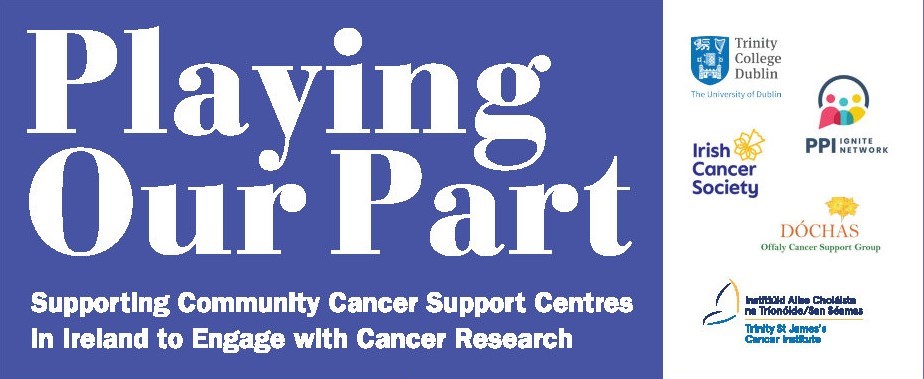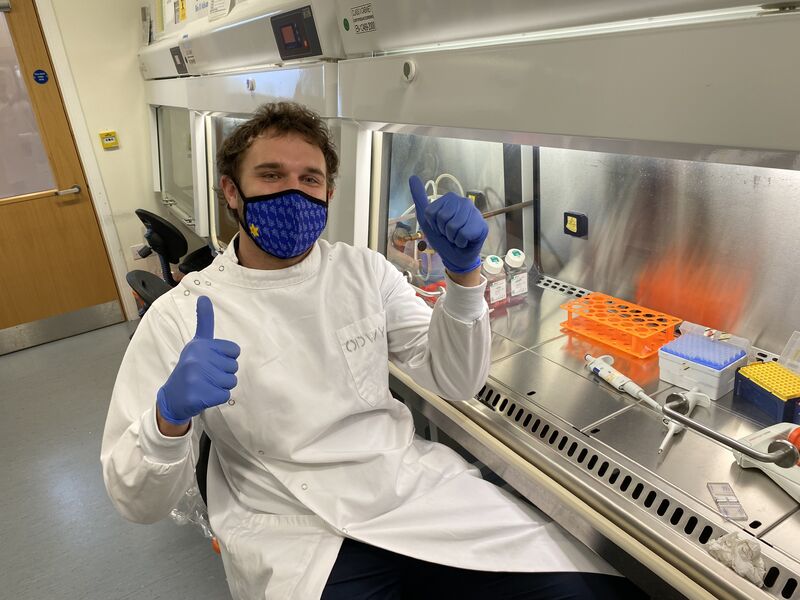Public and patient involvement
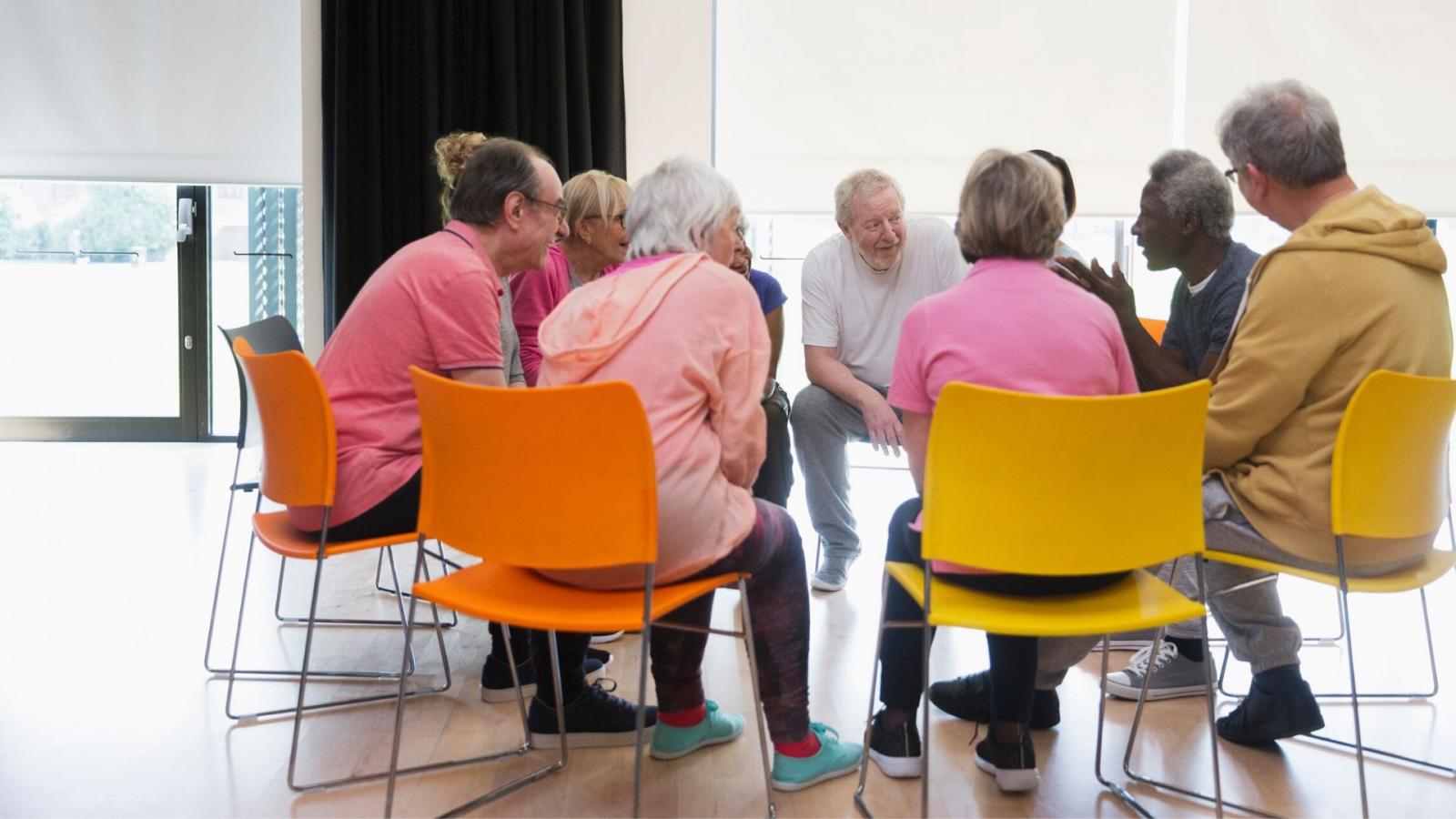
On this page:
What is Patient & Public Involvement (PPI) at the Irish Cancer Society?
The Irish Cancer Society is committed to putting patients, families, survivors, supporters and the public at the very heart of what we do. In keeping with this commitment, we are working to embed Patient and Public Involvement (PPI) in our research processes. There are many different ways people with cancer can interact with research, specifically by means of participation, engagement, and involvement (1).
- Participation: A person with cancer may be recruited into, and take part in, a research study and provide data of some form.
- Engagement: Engagement is when the researcher communicates and shares research information, for example, at science festivals, public talks, television programmes, or radio.
- Involvement: Involvement is distinct from participation or engagement. Where participation and engagement are conducted ‘to’, ‘about’, and ‘for’ people with cancer, involvement is ‘with’ or ‘by’ people with cancer. People with cancer can be involved at any stage of the research process, from conceptualisation to dissemination.
Why is PPI important?
PPI is becoming increasingly common in research. The Irish Cancer Society is committed to expanding the involvement of those affected by cancer in the research that the Society funds, and in the funding decision-making process. This commitment is reinforced by the Irish Government's National Cancer Strategy (2017-2026) (2), which highlights:
“Patient involvement in cancer research improves the relevance of research questions, the quality, acceptability and feasibility of research conduct and the likelihood of uptake of research outputs.”
PPI creates a partnership between people affected by cancer and researchers. It is more than a tokenistic gesture to comply with policy; it can provide a real and substantial benefit to all stakeholders. While not without its challenges, PPI can:
- Promote a sense of empowerment and value among patients (3).
- Enhance patient trust in researchers (3).
- Improve researchers’ insights into their own research area (3).
- Help researchers identify barriers and come up with solutions to research (3).
- Increase trust and acceptability of research findings in the patient community (3).
- Inform the provision, access, and location of healthcare services (4).
- Improve the dialogue between healthcare professionals and patients (4).
Specific to the cancer setting, PPI may be used by patients as a resource, to make sense of living with a chronic condition (5). People with cancer report feeling enhanced knowledge and skills from taking part in PPI, as well as feeling they contributed to research by providing a lay perspective (i.e. practical knowledge about being a patient with cancer) (6).
As such, PPI can be a valuable tool in the research process for both patients and researchers, and the Irish Cancer Society aims to expand its PPI work in the coming years.
Celebrating Patient and Public Partnership in Cancer Centres through Connection and Collaboration
The Irish Cancer Society are delighted to present a report on the 'PPP in Cancer Centres Networking and Workshop Event', meant to kick start conversations around developing and strengthening PPP across Cancer Cenres in Ireland.
In early 2024 at an OECI networking day, PPP Leads discussed the benefits of sharing learning across cancer centres. This lead to further discourse with leads from Beaumont RCSI Cancer Centre, Trinity St James’s Cancer Institute, patient and public partners, the PPI Ignite Network and the Irish Cancer Society, as to how this could be achieved.
In October 2024, a networking workshop for patient and public partners, OECI coordinators, and PPP cancer leads from cancer centres across Ireland was hosted by the Irish Cancer Society. This event marks the beginning of a move to work together to strengthen and enhance PPP across cancer centres.
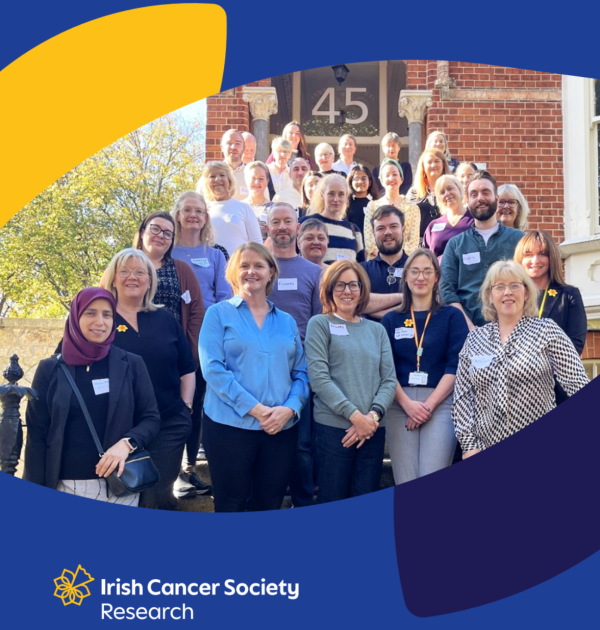
PPI in Cancer Network: Report from Kick-Off Event
The Irish Cancer Society are delighted to present a report on the ‘PPI in Cancer Network’ kick-off event, which was carried out to showcase the breadth of Public and Patient Involvement (PPI) in cancer on the island of Ireland.
In October 2023, the Irish Cancer Society hosted the first ‘PPI in Cancer Network’ event, which brought together individuals who are engaged with PPI and cancer across the island of Ireland. The Republic of Ireland and Northern Ireland cancer strategies have both recognised the vital role of PPI within the cancer research landscape; and have highlighted the importance of optimising the involvement of people affected by cancer in research. As such, this kick-off event gathered various stakeholders to discuss if, and how, an all-Ireland ‘PPI in Cancer Network’ should be established. It provided an opportunity for key stakeholders to brainstorm the goals and scope of such a network, and to consider who should drive it forward. Attendees included PPI contributors affected by cancer, researchers working in the cancer field, clinicians, charities involved in funding cancer research, and other research funding bodies. A survey was also circulated to those who could not attend the event, to allow further voices to be heard in the process.
This report documents the findings from the event and survey, which includes clear recommendations for a ‘PPI in Cancer Network’ moving forward. The overall finding of the report is a clear need for a cross-border centralised network, which would also act as a trusted source for PPI-related information. The report presents detailed summaries of discussions around the profile and uptake of PPI in cancer research, collaborating on a centralised resource, training and support, as well as the running and membership of the network. Clear recommendations were generated from these summaries- offering fundamental guidance to organisations with a wide-reaching scope across the cancer research landscape, who may be best placed to take action.

Case Study and PPI Resource
Playing Our Part - Supporting Community Cancer Support Centres to Engage in Research in Ireland
Dr Emer Guinan, Associate Professor and researcher at Trinity St. James's Cancer Research Institute (TSJCI) was awarded an Irish Cancer Society Cancer Research Networking Award in 2023. This project, lead by Dr Guinan, in partnership with co-applicants Mr John Conroy, Dóchas Offaly Cancer Support Groups, and Mr Michael Foley, PPI Ignite, Trinity College Dublin, involved hosting a networking workshop with Community Cancer Support Networks.
At the workshop, a collaborative group of Community Cancer Support Centre representatives, researchers and PPI representatives came together to discuss the challenges facing Cancer Support Centres in managing requests for research participation and PPI contribution. As a result of this workshop, the team developed a practical and comprehensive guidance document for researchers aiming to work with Community Cancer Support Centres.
This guidance documentation and infographic summarising the findings and recommendations can be found below.
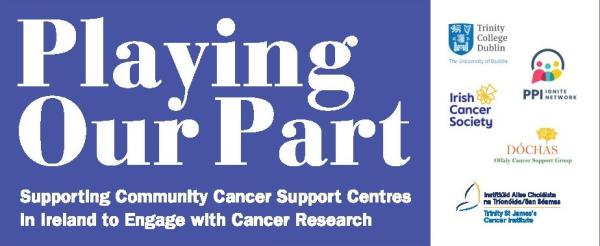

Get involved in PPI
The Irish Cancer Society research department are seeking PPI representation from individuals affected by cancer (patients, family members, carers, and survivors) to participate in their research processes.
This currently involves our PPI representatives reviewing sections of grant applications that have been submitted to us by cancer researchers and/or participation on grant review interview panels.
If you are interested in becoming a patient representative please email ppi@irishcancer.ie for further information.
References
(1) INVOLVE. (2018). What is public involvement in research? Retrieved from http://www.invo.org.uk/find-out-more/what-is-public-involvement-in-rese…. Accessed 2/08/2018.
(2) Department of Health. (2017). National Cancer Strategy (2017-2016). Retrieved from https://health.gov.ie/wp-content/uploads/2017/07/National-Cancer-Strate…. Accessed 28/08/2018.
(3) Brett, J., Staniszewska, S., Mockford, C., Herron-Marx, S., Hughes, J., Tysall, C., & Suleman, R. (2014a). A systematic review of the impact of patient and public involvement on service users, researchers and communities. The Patient-Patient-Centered Outcomes Research, 7(4), 387-395.
(4) Mockford, C., Staniszewska, S., Griffiths, F., & Herron-Marx, S. (2011). The impact of patient and public involvement on UK NHS health care: a systematic review. International Journal for Quality in Health Care, 24(1), 28-38.
(5) Thompson, J., Bissell, P., Cooper, C. L., Armitage, C. J., & Barber, R. (2014). Exploring the impact of patient and public involvement in a cancer research setting. Qualitative Health Research, 24(1), 46-54.
(6) Froggatt, K., Preston, N., Turner, M., & Kerr, C. (2014). Patient and public involvement in research and the Cancer Experiences Collaborative: benefits and challenges. BMJ Supportive & P Care, 5, 518–521.
For more information
Phone
(01) 231 0500
